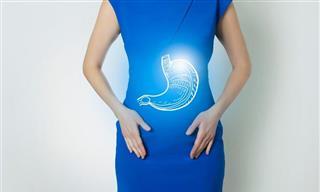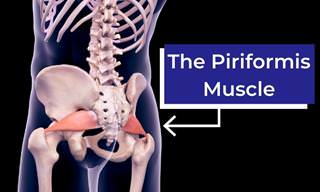1. Cut Out Foods Containing a Lot Of Histamine From Your Diet
Histamine is a natural compound in the human body that helps us maintain our immunity and nervous system, as well as digest foods. Apart from existing in our bodies, though, histamine can be found in high quantities is some foods.
These foods include:
- aged cheeses
- fermented foods
- beer
- wine
- smoked fish
- cured meats
Consuming foods high in histamine raises its levels in the blood, which can cause a migraine. Furthermore, some people have difficulties regulating the level of histamine in their blood because they don’t have enough enzymes responsible for breaking down histamine.
All of this combined means that people who are sensitive to histamine level changes will have a headache after consuming foods that contain a lot of it.
2. Avoid Strong Smells
Just like foods, smells can trigger a headache, but only in people that are very sensitive to fragrances and odors. Usually, individuals develop headaches after being exposed only to strong smells, such as paints, cigarette smell, nail polish, perfume and cleaning products.
This observation was proven scientifically, a study involving 400 participants experienced migraines or tension headaches found that strong smells, particularly perfumes, can trigger headaches, especially among those suffering from chronic migraines.
Eliminate strong smells if you think they may be the cause of your headaches.
3. Use Essential Oils to Ease Your Pain
Many essential oils have a very beneficial effect on human health, and if you know which one does what, you can use them to boost your health and heal. Because they are highly concentrated, a little goes a long way, too.
The 2 essential oils beneficial to relieving headaches are lavender and peppermint oil:
- If you have a tension headache, apply a tiny dot of peppermint oil to your temples. This will invigorate your mind and release the tension from your muscles.
- Lavender oil, on the other hand, is used to treat migraines. Put a drop of lavender oil on the upper lip area. Inhaling the lavender scent will ease the pain.
4. Stop Consuming or Limit Alcohol
If you experience frequent headaches, consider cutting out alcohol. Many people will know that excess consumption of alcohol can cause a hangover, but this is not the kind of headache we mean. For people sensitive to alcohol, it can actually cause tension and cluster headaches.
Apart from that, research shows that ⅓ of migraine sufferers will experience a headache after drinking.
5. Look Out For Foods Containing Nitrates and Nitrites
Nitrates and nitrites are used to prevent foods from spoiling, usually when the food hasn’t gone through a long enough curing process. These food preservatives are usually well-tolerated, but some people reported getting headaches after consuming foods that contain nitrates and nitrites.
These food preservatives can be found in many meat products:
- hot dogs
- sausages
- hams
- bacon
The headaches occur because nitrites may trigger the expansion of blood vessels, which means that they can also affect blood pressure. Minimize the foods that contain nitrates, opt for the meat products that were cured naturally and for long periods of time, and not the ones that are loaded with preservatives and treated with liquid smoke.
6. Caffeine Is Your Best Friend
Did you know that many painkillers contain caffeine as a supporting ingredient? This is because caffeine can relieve headaches and make you feel more alert. So, if you don’t want to take a pill or you simply don’t have one around and nothing seems to help, drink something that contains caffeine, such as tea, matcha or coffee.
It will not only improve your mood, but it can also constrict your blood vessels, all of which can ease headache symptoms. Do mind that if you’re a regular coffee drinker and suddenly stop, caffeine withdrawal can manifest itself in a headache as well, so be mindful of your caffeine intake, especially if you’re prone to headaches.
7. Avoid bright lights and loud sounds
Unfortunately, migraine sufferers are no strangers to the phenomena of photo- and phonophobia. These conditions refer to unusual light and sound sensitivity respectively.
According to some estimates, 80% of them are sensitive to light, and it is most likely because the optic nerve in these individuals is more reactive than usual. Luckily, the treatment of these conditions is intuitive and effective: just sit in a dark, quiet room and after 10-20 minutes the migraine usually starts to diminish, as reported by 90% of patients.
Also, don't forget to always carry a pair of sunglasses with you if you know you're sensitive to light. Noise-canceling headphones are an option as well, though these can be quite expensive.
8. Use a Warm or Cold Compress On Your Neck and Head
This ancient method is so popular not only because it is so easy, but also because it is very effective. Putting a warm towel or cloth around your neck, right at the base of your skull or on your forehead and temples for few minutes.
It should alleviate the symptoms of a tension headache. Some people prefer a cold compress instead of a warm one, and there is no set rule as to which method works for what, so just try what works best for you personally.
9. Take a B-Complex Vitamin
If you’re someone who knows that they get frequent headaches, it might be a good idea to take a complex of B vitamins, as they may protect you from headaches.
Several studies proved that a complex of 3 B vitamins: riboflavin (B2), folate (B12) and pyridoxine (B6) can significantly reduce not only the frequency, but also the strength of headaches.
A complex of B vitamins usually contains all these 3 vitamins and more, and they’re quite affordable. You do need to take them every day, as any excess isn’t stored in your body and it is flushed out of your body with urine.
10. Massage your neck and temples
If a headache was caused by a spasm in the neck or face muscles, there is nothing better that a quick self-massage.
Rub your neck, chewing muscles and temples in circular motions to release the tension from the area and increase the blood flow. You can do it several times a day, and it is likely to soothe your headache.
11. Sip Some Ginger Tea
Ginger root is a favorite for so many people because it is a real multitasker. Don’t be surprised to see it in the list of remedies that can heal your headache, as it contains a massive amount of antioxidants and anti-inflammatory compounds.
In a study with 100 participants with chronic migraines that were given 250 mg of ginger powder, ginger was found to be just as effective in reducing migraine symptoms, as sumatriptan, a commonly-used headache medication.
And by “migraine symptoms” we mean not only headaches, but also nausea and vomiting, which are commonly experienced among patients suffering from severe headaches. Mind you that a strong ginger tea will be just as effective as a capsule of ginger powder.
 Go to BabaMail
Go to BabaMail





























































